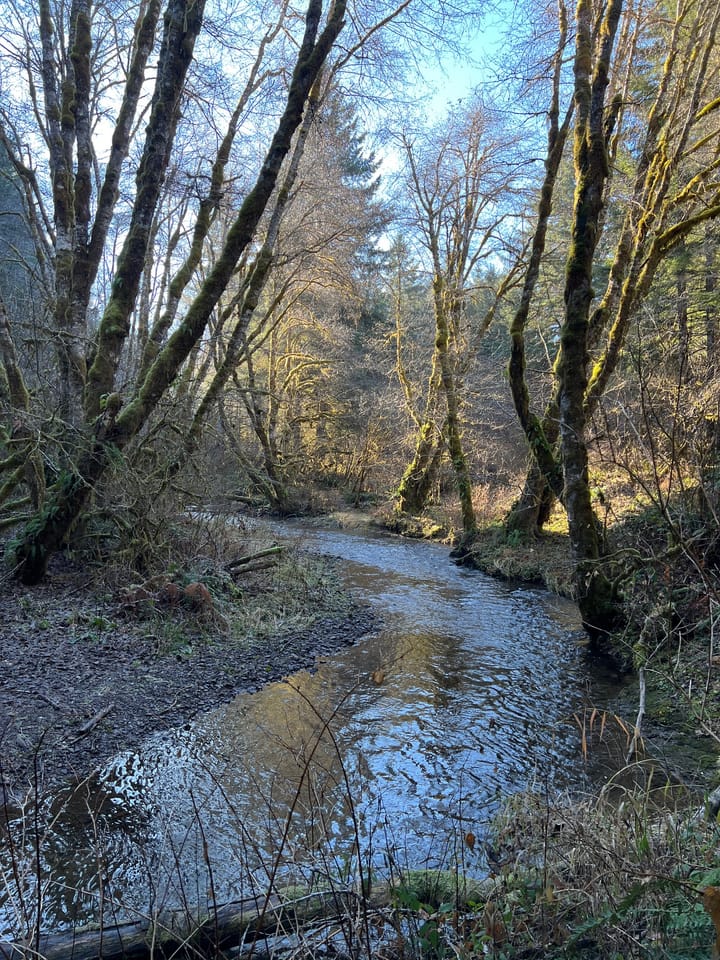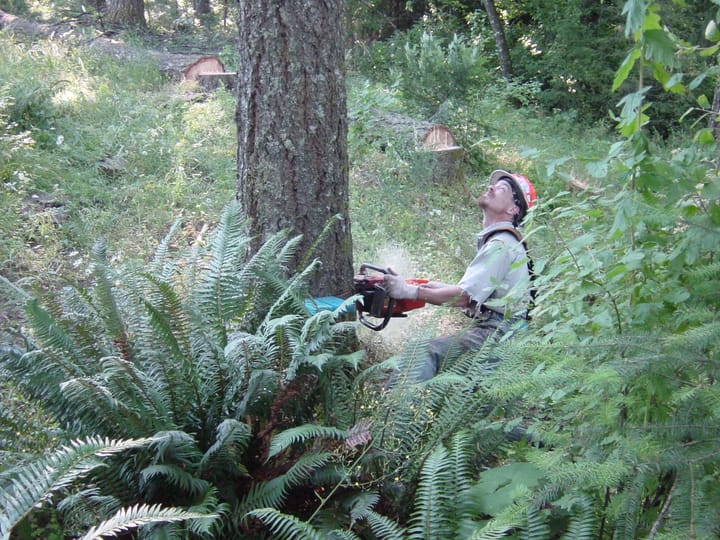Helping Henry

How my Cousin Henry helped clarify a big, unmet need - How will we fill it?
My cousin, Henry, is a determined and thoughtful person. I was reminded of this recently when he asked me the same question several times a year spread over three years. His is a good question and he, for good reason, kept asking it because I have yet to come up with an adequate answer. He asked “what reliable sources will help me better understand what is really going on in the world of forests and forestry in Oregon?”. Henry’s motivation is to become better informed as a basis for becoming more actively involved. Fumbling for a helpful reply, I’d suggest a resource, to which Henry would ask “How unbiased and reliable is it?”, to which I always had to reply “Well, not very... it leans pretty hard toward advancing the interests of the industrial scale timber corporations..”. Equally often my suggested sources again failed the test by being unreliably biased in the opposite direction. These conversations have been frustrating because I know what Henry, as a responsible citizen, needs and wants, and our failed hunt for answers makes me realize that they don’t exist. This is a problem. As a longtime student of these information sources, I find that in some cases they spread information that is intentionally, or unintentionally, false, but more often the narratives are irresponsibly skewed by selecting for only those details that support the authors’ cause. The effect is similar to the disservice done to a student if teachers limited what was included in the report card to only the good news or bad news. I’ve heard leaders from both of the extremes make comments along the lines of “The truth? Well, it should always be at least considered.”.
I was recently reminded of Henry’s request for help when I encountered one of the charts that assess media sources based on two variables - their relative level of bias or accuracy and their leaning along the political spectrum. Here is one version:

Reflecting on the chart, I realized that information sources related to Oregon forests and forestry could be plotted and analyzed using a similar approach. The one difference would be replacing “political bias” on the X axis with “pro timber extraction” on the right and “pro conservation/preservation” on the left. When I do this, I find a similar pattern, but with one major difference; where the above chart is well populated in its upper central portion, that area of the Oregon forest chart is mostly empty. No wonder Henry is unsatisfied and frustrated in his efforts to connect with these important issues.
Based on studying the impacts of these deliberately warped narratives for years, I see two main consequences. The first is that people make decisions based on distorted understandings of the conditions of our forests and our roles in them. The second is that these divergent forest-related narratives fuel ever increasing divides between Oregon’s citizens. Much as is happening on the national level, the stories we tell and pay attention to cause us to live in increasingly unrelated realities. This makes finding the common ground on which constructive cooperation depends less attainable. We are choosing to create and believe stories that are not true. History teaches us that this is a dangerous choice. Examples include false narratives such as “rain follows the plow” contributing to the Dust Bowl, racist beliefs fueling the rise of Nazi Germany and other genocides across the world, manifest destiny, or the belief that North American forests or ocean fisheries were too vast to ever be exhaustible.
The price we pay for tolerating this missing middle comes in several forms. This dynamic makes it harder for civically-minded, average citizens, like Henry, to become informed about and actively engaged in these important issues. We need the Henrys, badly, and without them the inevitable political struggles are left to those with the most extreme positions and most powerful misinformation campaigns and those least committed to finding common ground and working constructively together. Additionally, the choice to continue down the road we’re on is a choice to exacerbate our dangerous divisions and limit our ability to create constructive solutions.
Solutions are available to us; here are four that come to mind:
1 – Fill in the Middle - Encourage and support our more reliable and less biased and invested media entities to become more actively engaged in occupying the missing middle by responsibly covering forest issues – regularly and in depth. Examples include Oregon Public Broadcasting and the Oregonian and I thank both for their increased focus on forest issues. This could also include the creation and support of new sources, such as Sightline Institute’s new Farms and Forests Program.
2 – Challenge Deception and Bias - Misleading, inaccurate, or unsupported material can and should be challenged and those who produce it should be challenged to do better.
3 – Triangulate – When all sources seem less than reliable, try to learn from all of them as a basis for better understanding and deducing where the truth might lie.
4 – See For Yourself – Best of all, instead of relying on the second-hand reports of others, find ways to have direct, personal interaction with our forests and those who work with them.
Forestry and forest systems in Oregon have many strengths that should be maintained and never taken for granted. At the same time, the evidence is clear that we have yet to meet the measure of creating forestry approaches that will work as well in the long run as they do in the short run – sustaining the health and wealth of both the forests and the human communities linked to them. There is work to be done, by all of us. Creating this better forestry requires us to tell better, more reliable stories about forests and our relationships with them. Now is the time to shift away from the politically motivated, deceptive narratives we are accustomed to and toward responsible narratives that help us build a foundation for cooperatively meeting the challenges of this changing and complex world. I salute Henry for doggedly asking the right question. Now we have to help him learn what he – and we – need to learn.


